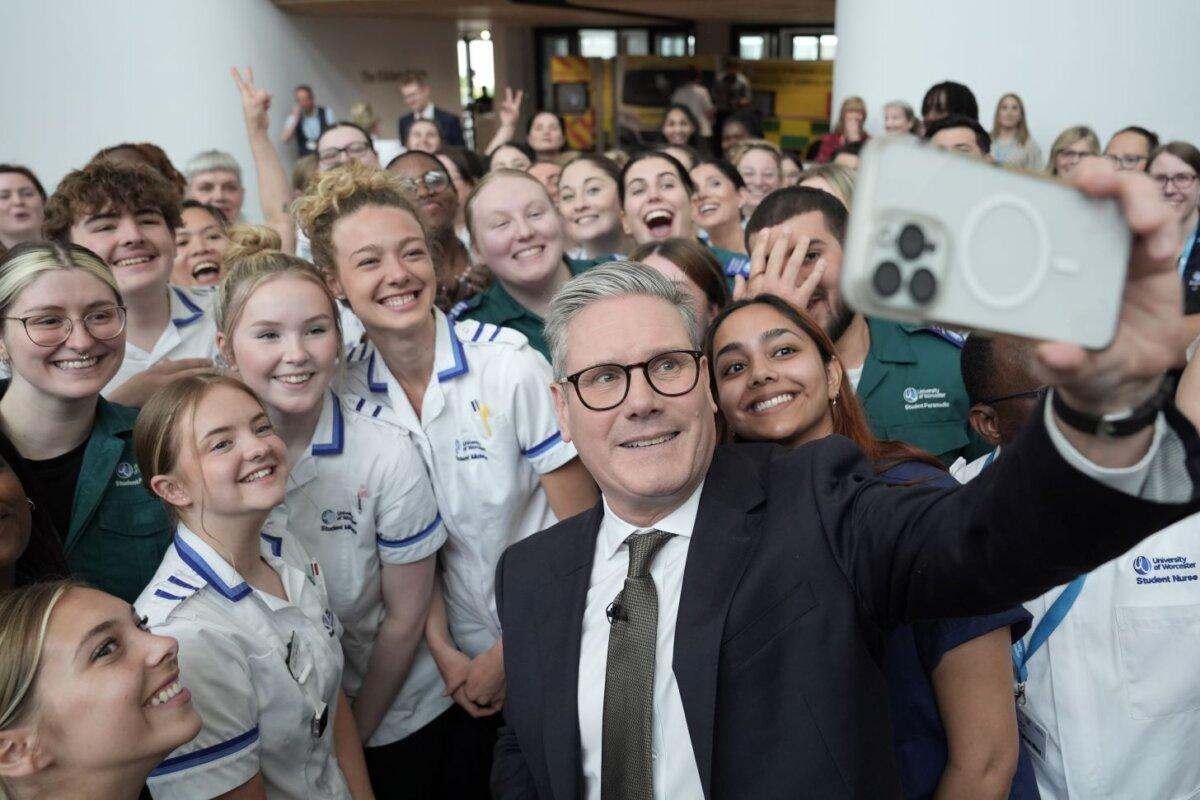Policymakers are being urged to consider measures such as student loan forgiveness schemes to ensure there are enough homegrown nursing staff to meet the health care needs of the population.
The register of all nursing and midwifery professionals who are registered to practise in the UK has reached an all-time high of 841,367, new data reveal.
The register now comprises 778,340 nurses, which represents an increase of 1.7 percent since April, and 45,198 midwives, or a 2.4 percent increase. Meanwhile, there are now 11,551 registered nursing associates, which is up 6.2 percent since April.
23.8 Percent Qualified Overseas
There are now more than 200,000 overseas trained professionals on the register, with 23.8 percent of the total UK nursing and midwifery workforce having qualified outside the UK.Of these registered professionals, 67,576 were trained in India—up 8.3 percent since April—while 50,180 qualified in the Philippines, an increase of 2.2 percent.
While another 12,534 overseas trained professionals joined the register, this represents a fall of 16.6 percent since April, and 33 percent more internationals left (2,573) in the six months to the end of September than in the same period last year.
These 2,573 leavers account for 1.4 percent of all international professionals on the register, compared to 1.2 percent of internationals who left between April and September 2023.
The total number of professionals—whether UK or overseas trained—who joined the register for the first time between April and September fell by 9.2 percent to 27,313 (compared to 30,085 in the six months to September 2023) despite the overall figure standing at an all-time high.
‘Small Comfort’
The segment of professionals leaving after five years or less on the register has risen to 1,799 in the six months to September, compared to 1,211 in the same period last year. This represents an increase of 48.6 percent for the period but is unchanged when viewed as a proportion of the register (0.2 percent).Kuljit Dhillon, NMC’s interim executive director of strategy and insight, said that although the NHS was heading for another “tough winter,” the organisation hoped “there is small comfort in the growth of our register to a record 841,000.”
But she said there were “notes of caution” in the data around international recruitment.
“We’ve seen a fall in internationally educated joiners and an even higher proportional rise in leavers, although it’s important to view leavers’ data through the lens of a growing register.”
Some nursing bodies have warned that planned NHS reforms “stand no chance” if issues with recruitment and retention in the profession are not addressed.
Professor Nicola Ranger, general secretary and chief executive of the Royal College of Nursing, called the latest figures “bad news for patients.”
“Nurse recruitment is slowing, the numbers of new starters is falling and we are witnessing a devastating increase in people leaving within five years of joining,” she added.

Student Numbers Falling
“Across health and care services, international recruitment was utilised to plug rota gaps, but we are now watching as thousands of overseas staff choose to go elsewhere.“This comes as the number of student nurses in the UK dropped considerably again this year, showing worse years seem be ahead,” Ranger said.
She added that as demand for care is soaring, ministers across the UK need to recognise difficulties in recruitment and retention as “a perfect storm for patient safety and take action.”
She blamed “low pay” and challenging working conditions in “understaffed and under-resourced services” taking a toll, with “burnout pushing highly-trained nursing staff out the door.”
“Across England, we desperately need a loan forgiveness scheme to boost domestic recruitment into the profession. The government’s NHS reforms stand no chance of being delivered without addressing these fundamentals,” Ranger said.
A YouGov poll in March found that 76 percent of the public would support student loans being written off for nurses who work in the NHS or other public services.
Billy Palmer, senior fellow at think tank Nuffield Trust, welcomed the overall growth in the register but warned the workforce is still facing shortages.
‘Increasingly Inexperienced’ Workforce
Palmer said the UK’s nursing and midwifery workforce is “increasingly inexperienced and facing deeply worrying shortages in important areas, with learning disability nursing numbers still lower than five years ago.”“Concerningly, the number of nurses and midwives with over 10 years’ experience is falling, and 28 percent of staff have five years’ experience or less,” he said, adding that this echoes trends seen in the latest registration data for doctors.
“This shift to less experienced staff may affect productivity and put a strain on those who train, mentor and supervise them,” he warned.
He added that a “heavy reliance on overseas joiners continues,” pointing to the fact that nearly half of new nursing and midwifery registrants qualified outside of the UK.
“Policymakers and educational leaders cannot stay blind to these trends. They need to be bold – considering measures like student loan forgiveness schemes – to ensure UK nursing and midwifery has enough domestically trained, experienced staff to sustain the NHS workforce for the future.”
A Department of Health spokesman said: “Nurses have been overworked for years, leaving them burnt out and demoralised. That’s why we accepted the recommendations of the independent pay review bodies to award them and other NHS staff an above inflation pay rise.
“We will work with staff to rebuild our health services and give the NHS the stability and certainty it needs.”







